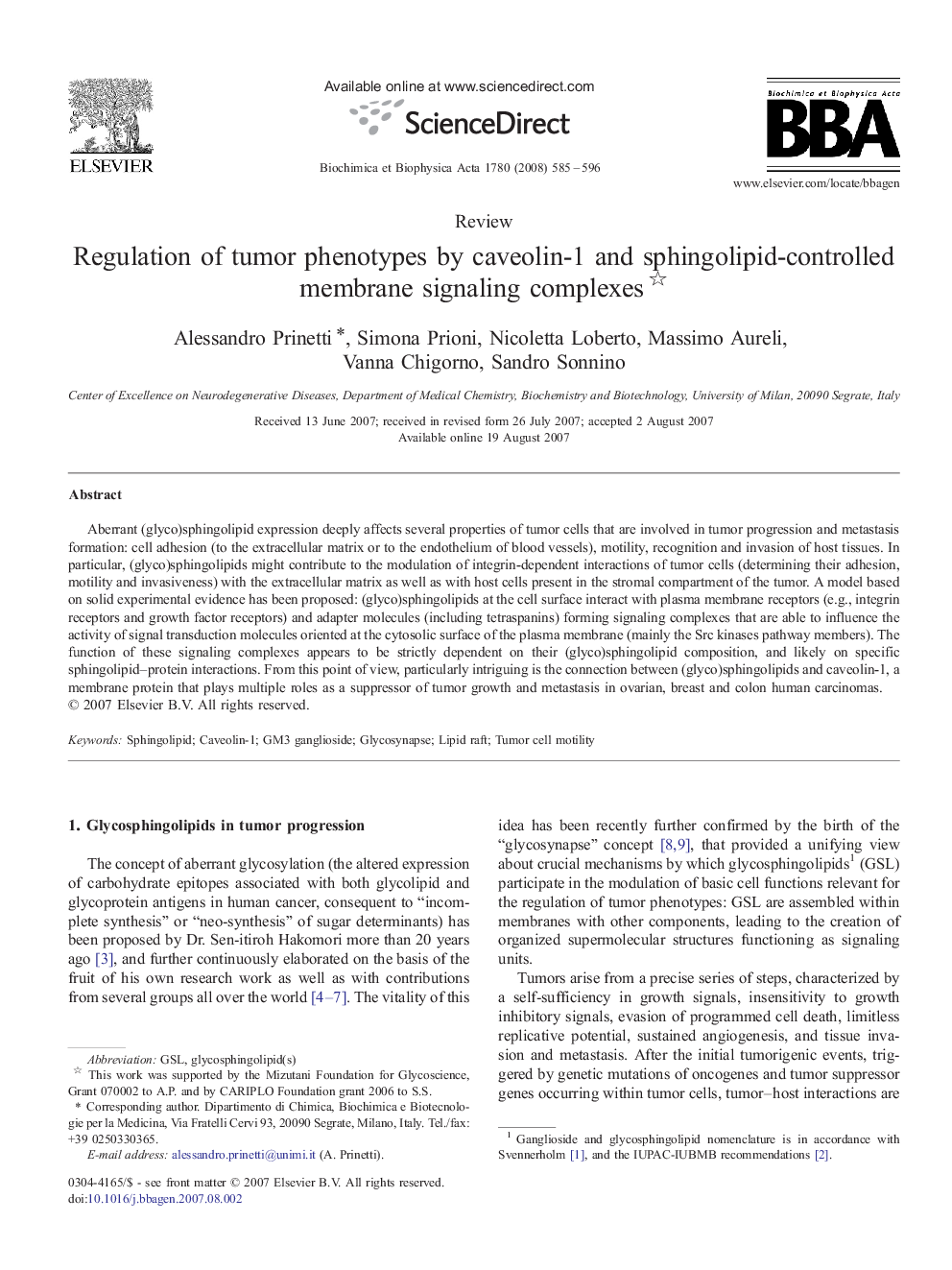| Article ID | Journal | Published Year | Pages | File Type |
|---|---|---|---|---|
| 1948424 | Biochimica et Biophysica Acta (BBA) - General Subjects | 2008 | 12 Pages |
Aberrant (glyco)sphingolipid expression deeply affects several properties of tumor cells that are involved in tumor progression and metastasis formation: cell adhesion (to the extracellular matrix or to the endothelium of blood vessels), motility, recognition and invasion of host tissues. In particular, (glyco)sphingolipids might contribute to the modulation of integrin-dependent interactions of tumor cells (determining their adhesion, motility and invasiveness) with the extracellular matrix as well as with host cells present in the stromal compartment of the tumor. A model based on solid experimental evidence has been proposed: (glyco)sphingolipids at the cell surface interact with plasma membrane receptors (e.g., integrin receptors and growth factor receptors) and adapter molecules (including tetraspanins) forming signaling complexes that are able to influence the activity of signal transduction molecules oriented at the cytosolic surface of the plasma membrane (mainly the Src kinases pathway members). The function of these signaling complexes appears to be strictly dependent on their (glyco)sphingolipid composition, and likely on specific sphingolipid–protein interactions. From this point of view, particularly intriguing is the connection between (glyco)sphingolipids and caveolin-1, a membrane protein that plays multiple roles as a suppressor of tumor growth and metastasis in ovarian, breast and colon human carcinomas.
